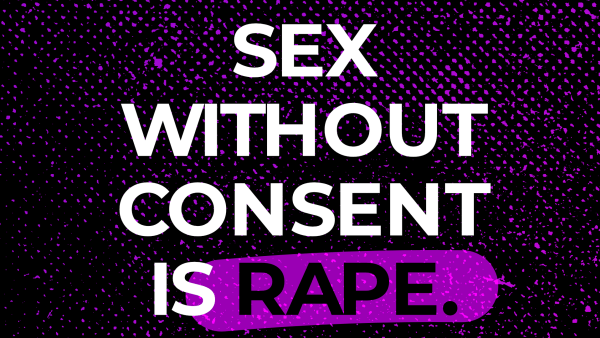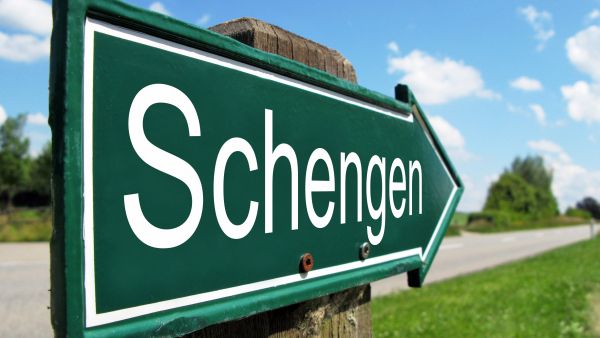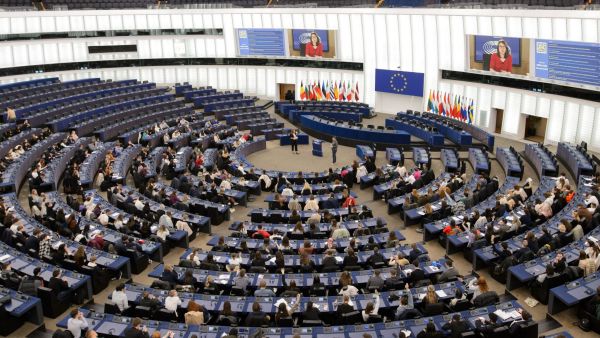A Relaunching Europe event took place in Budapest on the 11th June 2015. The choice of the venue is highly symbolic: a boat called EUROPA facing the Hungarian Parliament. The aim of the conference was to engage into a dialogue with younger and older generations of Hungarians and Europeans, and send a strong pro-European and progressive message on a number of interlinked issues crucial for Europe and Hungary. A photographic summary of the event is available here.
István Újhelyi, head of the Hungarian S&D delegation, welcomed the participants and said that the presence of such a big turnout showed that European progressives cared about Hungary. ‘We have to work together for a stronger Europe, one that can answer the demands of its citizens. Nice words are not enough. We want actions.’
Péter Niedermüller, S&D vice-president, in his welcome speech insisted that the S&D can make the difference at an EU level. ‘We push for investment, for job creation, for solidarity and equality, and we fight fiscal dumping, social dumping and tax evasion. These are the pillars of our work in the European Parliament.’
The conference was then opened with a keynote speech by Gianni Pittella, S&D president, who stressed that some Europeans were angry, particularly the young, because their expectations have not been fulfilled. ‘They are right. But the shortcomings in job opportunities, social cohesion and a fair economy are the consequence of the austerity imposed by the Conservatives. We must change Europe. Let’s do it together!’ – he added while calling on participants to start the interactive panel discussions which gathered MEPs and members of Hungarian civil society in three workshops.
In the first workshop, the issue of migration was debated and progressive responses were explored. Nasima Razmyar, member of the Finnish parliament and winner of the 2010 Refugee Woman of the Year Award, reporting back from the workshop stressed that ‘migration should not be confused with the free movement of people, which is a fundamental right in the EU’. She said it was important, however, that free movement remained a choice and not an obligation. In order to reverse the brain-drain from Central and Eastern Europe, the problem of low salaries needs to be tackled with better involvement of the local trade union movements. She clearly signalled that in some member states, governments are making the situation worse rather than helping improve it. Therefore, it is the role of progressives to offer better opportunities and improve the employment situation of young people through European and member state initiatives.
The second issue tackled was youth unemployment and the possibilities offered by start-ups. Although, self-employment presented an opportunity for new jobs, it is crucial to improve education systems to better prepare students for the labour market and better standards for all workers are needed. Kovács-Osváth Zoltán, management trainee at Sping Tab, a Hungarian start-up offering a digital platform for web content, stressed that ‘we must improve the spirit of entrepreneurship, there needs to be a change in mentality where business failure is better accepted.’ Most importantly, young generations have to look 20 years ahead when training for new skills. The conference also drew attention to the increasing number of start-ups in Greece as a result of young people’s reaction in face of the crisis and the high unemployment.
The last issue was about Hungary in an open world. Carlo Invernizzi Accetti, lecturer at Science-Po Paris, underlined that there was a huge problem with the way the Hungarian government dealt with the migration issue. He said this was a sign of an inward looking approach. He insisted that ‘The EU and Hungary need to be much more open to the world. Building new barriers, ‘Fortress Europe’, is not the solution. European issues also need to be debated at local level. The aim is not to shift boundaries but to eliminate them.’
Interventions from audience focused on the problems of the lack of cohesion and convergence in the EU, with richer countries continuing to become richer and the gap between the rich and poor widening. They also insisted on the importance of ensuring that we have a strong foreign policy at EU level and that we speak with one European voice, in particular when it comes to Russia, Ukraine and the Middle East. Some interventions also pointed out that attacking the current government of Hungary can become counter-productive; therefore, progressives need to focus on the alternative solutions.
Tania Fajon, S&D vice-president, concluded that ‘We need to build an EU which unites us in diversity, which offers solidarity and quality jobs to all Europeans instead of pushing them to forced, economic migration.’ She underlined that we need to be more optimistic about the future and we need to start implementing our progressive policies, which were reflected in the debates today.








